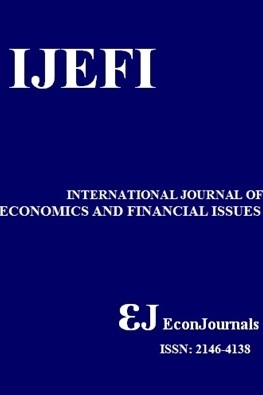How do We Measure Corporate Social Responsibility of Islamic Banks through their Business Processes and Oriented Outcomes?
How do We Measure Corporate Social Responsibility of Islamic Banks through their Business Processes and Oriented Outcomes?
Corporate Social Responsibility, Islamic Banks, Musharakah, Islamic Law,
- Başlangıç: 2011
- Yayıncı: İlhan ÖZTÜRK
Determinants of the Risk Tolerance of Individual Investors
Rahmawati ., M. Dileep KUMAR, Meyland KAMBUAYA, Farhan JAMİL, Saqib MUNEER
Nandan Limakrisna, Andriasan Sudarso, Cecep Daryus
Enriching Students’ Experience in Logistics and Transportation through Simulation
Adam Mohd SAİFUDİN, Nizamuddin ZAİNUDDİN, Ahmad Yusni BAHAUDİN, Mohd Hanizan ZALAZİLAH, Roslan JAMALUDİN
Siti Mardiana, Jann H. Tjakraatmadja, Atik Aprianingsih
Zahari Abu Bakar, Noorulsadiqin Azbiya Yaacob, Zulkifli Mohamed Udin
Corporate Cash Holding Behavior and Financial Environment: A Critical Review
Muhammad Sohail TAHİR, Mohammad Norfian ALİFİAH
Nurfarahin Jasmine See Abdullah, Ismi Arif Ismail, Khairuddin Idrus
Empirical Analysis of Money Demand Function with Economic Uncertainty
Pei-Tha Gan, Siew-Yong Lim, Mohd Yahya bin Mohd Hussin, Fidlizan bin Muhammad
Expectancy Theory Analysis to Conduct Research at Malaysian Research University
